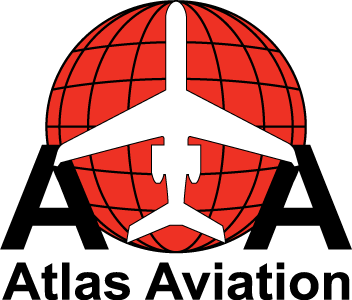Private Pilot Certification
The Private Pilot Certificate (PPL) is the most popular and versatile pilot license — your gateway to flying for fun, travel, and as the foundation for advanced training or professional aviation careers. At Atlas Aviation in Tampa, we make the journey to becoming a pilot structured, supportive, and exciting.
What You Can Do with a Private Pilot Certificate
After earning your Private Pilot Certificate with Atlas Aviation, you’ll be legally able to:
-
Fly single-engine land airplanes under 12,500 pounds (non-jet).
-
Share your passion with friends and family — you may split flight expenses with passengers.
-
Travel almost anywhere in the U.S. (and beyond) as long as the weather meets VFR standards.
-
Explore new destinations — imagine flying yourself (or renting one of our aircraft) to Key West or the Bahamasin just a few hours.
This certificate offers freedom, flexibility, and adventure — plus it’s the essential foundation for advanced ratings such as the Instrument, Commercial, and Certified Flight Instructor.
How Training Works
Discovery Flight – Your First Step
The best way to start is with a Discovery Flight. For $199, your instructor will:
-
Walk you through a pre-flight inspection.
-
Take you flying for a 30-minute lesson where you’ll handle the controls and experience what it’s like to be a pilot.
-
Sit down afterwards to discuss the training program and answer your questions.
If you decide to continue, you’ll enroll in our Cessna Online Ground School, sign up in our online scheduler, and begin a structured training program that blends ground lessons and flight lessons in a logical, trackable sequence.
Flight Lesson Progression
-
Basic Airplane Control – Learn straight-and-level flight, climbs, descents, and turns.
-
Takeoffs & Landings – Practice with instructor guidance, then build to unassisted proficiency.
-
Solo Flight – After evaluation by our Chief Flight Instructor, you’ll complete your first solo flight — one of aviation’s most memorable milestones.
-
Cross-Country Flights – Learn flight planning, navigation, and long-distance flying to destinations 50+ NM away.
-
Night Flying – Gain the skills to safely operate after sunset.
-
Final Preparation – Written exam prep, mock checkrides, and polishing your skills before the big day.
Prerequisites
To begin Private Pilot training, you must:
-
Be at least 17 years old to take the checkride (training can begin earlier).
-
Hold at least a 3rd Class FAA Medical Certificate (issued by an Aviation Medical Examiner).
-
Be able to read, speak, write, and understand English.
Training Hours
FAA minimums for the Private Pilot Certificate are:
-
40 total flight hours
-
20 hours of dual instruction with a Certified Flight Instructor (CFI)
-
10 hours of supervised solo flight
-
Remaining hours may be a mix of dual and solo training
-
Training must include:
-
At least 3 hours of night flying (with night cross-country and takeoffs/landings)
-
At least 3 hours of instrument training (basic instrument reference)
-
At least 3 hours of cross-country dual instruction
-
A solo cross-country flight of at least 150 NM with full-stop landings at 3 airports
👉 Average training time: Most students need 60–75 hours to be fully proficient before the checkride.
Costs
Training costs vary based on aircraft type and student pace. Typical breakdown:
-
Aircraft rental (Cessna 172 or similar): $XXX/hour wet (fuel included)
-
Instructor time: $XXX/hour
-
Ground school (online or classroom): $XXX
-
Books, materials, and supplies: approx. $300
-
FAA written exam fee: $175
-
FAA checkride (practical exam) fee: $600–$800 (paid to examiner)
👉 Estimated total cost: $12,000 – $15,000, depending on study habits, aircraft chosen, and training frequency.
Examinations
You must pass two FAA-administered tests:
-
Knowledge Test (Written Exam)
-
60 multiple-choice questions
-
Covers regulations, weather, navigation, aerodynamics, performance, and flight planning
-
Minimum passing score: 70%
-
-
Practical Test (Checkride) with a Designated Pilot Examiner (DPE)
-
Oral exam: 1.5–2 hours of questions on flight planning, weather, and regulations
-
Flight test: 1.5–2 hours in the aircraft demonstrating maneuvers, navigation, and emergency procedures
-
Benefits of a Private Pilot Certificate
-
Fly Almost Anywhere – Unlike the Sport Pilot, the PPL allows flight at night, higher altitudes, and in a wider range of aircraft.
-
Travel Flexibility – Take family and friends on trips across the country.
-
Foundation for Advanced Training – Required for higher certifications like Instrument Rating, Commercial, and beyond.
-
More Career Options – Opens the door for pathways into professional aviation.
-
Prestige & Accomplishment – The PPL is widely recognized as one of life’s greatest achievements.
